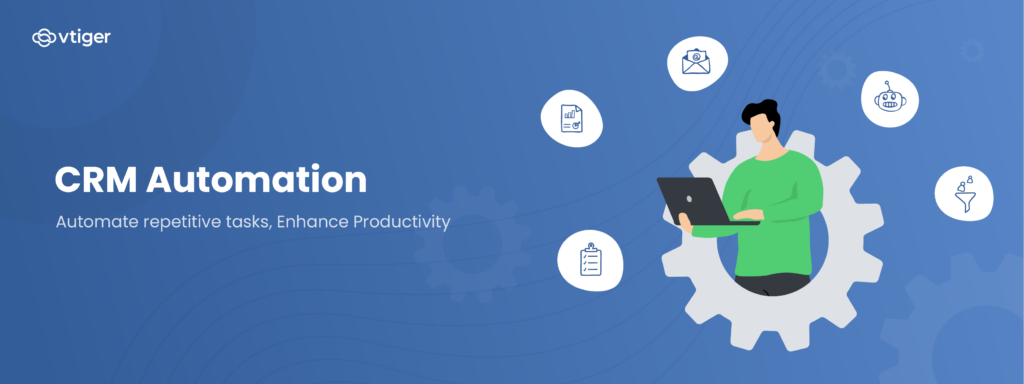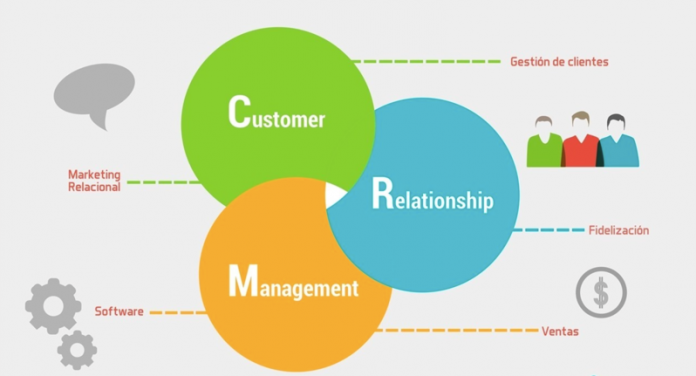The Ultimate Small Business CRM Guide: Boost Sales, Delight Customers, and Grow Your Business
The Ultimate Small Business CRM Guide: Boost Sales, Delight Customers, and Grow Your Business
Running a small business is an adventure. It’s exhilarating, challenging, and incredibly rewarding. You’re juggling multiple roles, from product development to marketing to customer service. In the midst of this whirlwind, keeping track of everything can feel like trying to herd cats. That’s where a Customer Relationship Management (CRM) system comes in. It’s your secret weapon for organization, efficiency, and ultimately, success. This comprehensive guide will walk you through everything you need to know about CRMs for small businesses, from the basics to advanced strategies.
What is a CRM? The Foundation of Customer Relationships
At its core, a CRM is a system that helps you manage your interactions with current and potential customers. Think of it as a centralized hub for all your customer-related information. Instead of scattered spreadsheets, sticky notes, and email threads, a CRM consolidates everything into one accessible place. This includes:
- Contact Information: Names, addresses, phone numbers, email addresses, and social media profiles.
- Interaction History: Records of all communication, including emails, phone calls, meetings, and support tickets.
- Sales Data: Information about deals, opportunities, and sales pipelines.
- Marketing Data: Details about marketing campaigns, customer segmentation, and lead generation.
- Customer Preferences: Notes on customer needs, interests, and purchase history.
By having all this information readily available, a CRM empowers you to build stronger relationships with your customers. It allows you to understand their needs better, personalize your interactions, and provide exceptional customer service. This, in turn, leads to increased customer loyalty, higher sales, and sustainable business growth.
Why Does Your Small Business Need a CRM? The Benefits Explained
You might be thinking, “My business is small. Do I really need a CRM?” The answer is a resounding YES! Even if you’re just starting out, a CRM can provide significant benefits. Here’s why:
1. Improved Customer Relationships
This is perhaps the most significant advantage. A CRM helps you understand your customers better, allowing you to tailor your interactions and provide more personalized experiences. This leads to increased customer satisfaction and loyalty. You can track customer preferences, purchase history, and communication history to anticipate their needs and proactively offer solutions.
2. Increased Sales and Revenue
By streamlining your sales process, a CRM helps you close more deals. It allows you to track leads, manage your sales pipeline, and identify opportunities for upselling and cross-selling. You can also automate tasks like sending follow-up emails and scheduling appointments, freeing up your time to focus on closing deals.
3. Enhanced Efficiency and Productivity
A CRM automates many manual tasks, saving you time and effort. You can automate email marketing campaigns, schedule appointments, and generate reports with just a few clicks. This frees up your team to focus on more strategic tasks, such as building relationships with customers and developing new products or services.
4. Better Data Analysis and Reporting
A CRM provides valuable insights into your business performance. You can track key metrics, such as sales figures, customer acquisition costs, and customer lifetime value. This data allows you to make informed decisions and optimize your business strategies. You can also generate reports to track your progress and identify areas for improvement.
5. Improved Collaboration and Communication
A CRM allows your team to share information and collaborate more effectively. All customer data is stored in a central location, making it easy for everyone to access the information they need. This eliminates the need for lengthy email chains and ensures that everyone is on the same page.
6. Scalability and Growth
As your business grows, a CRM can scale with you. Most CRM systems offer various pricing plans to accommodate businesses of all sizes. You can add more users, features, and integrations as your needs evolve. This ensures that your CRM remains a valuable asset as your business expands.
Key Features to Look for in a Small Business CRM
Not all CRMs are created equal. When choosing a CRM for your small business, consider the following features:
1. Contact Management
This is the core functionality of any CRM. It allows you to store and organize contact information, including names, addresses, phone numbers, email addresses, and social media profiles. Look for a CRM that allows you to easily import and export contacts, segment your contacts, and add custom fields to store specific information relevant to your business.
2. Sales Automation
Sales automation features can significantly improve your sales team’s efficiency. Look for a CRM that allows you to automate tasks like sending follow-up emails, scheduling appointments, and creating sales reports. Features like lead scoring and sales pipeline management can also be very helpful.
3. Marketing Automation
Marketing automation features help you nurture leads and convert them into customers. Look for a CRM that allows you to create email marketing campaigns, segment your audience, and track the performance of your campaigns. Features like lead scoring and social media integration can also be beneficial.
4. Customer Service and Support
A good CRM will help you provide excellent customer service. Look for features like a help desk, ticket management, and live chat integration. This will allow you to quickly and efficiently resolve customer issues and provide a positive customer experience.
5. Reporting and Analytics
Reporting and analytics features provide valuable insights into your business performance. Look for a CRM that allows you to track key metrics, such as sales figures, customer acquisition costs, and customer lifetime value. You should also be able to generate custom reports to meet your specific needs.
6. Integrations
Consider which other tools and services you already use, such as email marketing platforms, accounting software, and social media channels. Choose a CRM that integrates seamlessly with these tools to streamline your workflow and avoid data silos. Integrations can save you time and effort by eliminating the need to manually transfer data between different systems.
7. Mobile Accessibility
In today’s fast-paced business environment, it’s essential to have access to your CRM data on the go. Look for a CRM with a mobile app that allows you to access your data, update records, and communicate with customers from your smartphone or tablet.
8. User-Friendly Interface
A CRM is only useful if your team actually uses it. Choose a CRM with a user-friendly interface that is easy to navigate and understand. The system should be intuitive and require minimal training.
9. Customization Options
Your business is unique, and your CRM should reflect that. Look for a CRM that allows you to customize the system to meet your specific needs. This includes the ability to add custom fields, create custom reports, and personalize your workflows.
10. Security and Data Privacy
Protecting your customer data is crucial. Choose a CRM that prioritizes security and data privacy. Look for features like data encryption, access controls, and compliance with relevant data privacy regulations, such as GDPR and CCPA.
Top CRM Systems for Small Businesses: A Comparison
Choosing the right CRM can feel overwhelming, with so many options available. Here’s a comparison of some of the top CRM systems for small businesses, highlighting their strengths and weaknesses:
1. HubSpot CRM
- Pros: Free CRM with powerful features, user-friendly interface, excellent integrations (including marketing, sales, and service hubs), strong reporting and analytics, scalability.
- Cons: Limited features in the free version, some advanced features require paid upgrades.
- Best for: Businesses of all sizes, especially those looking for a free, comprehensive CRM with marketing and sales automation capabilities.
2. Zoho CRM
- Pros: Affordable, feature-rich, customizable, excellent for sales automation, strong integrations, good customer support.
- Cons: Interface can feel cluttered at times, some advanced features can be complex to set up.
- Best for: Small and medium-sized businesses looking for a powerful and customizable CRM at an affordable price.
3. Freshsales
- Pros: User-friendly interface, excellent for sales teams, built-in phone and email capabilities, strong reporting and analytics, affordable.
- Cons: Fewer features than some competitors, limited customization options.
- Best for: Sales-focused businesses looking for an easy-to-use CRM with strong sales automation features.
4. Pipedrive
- Pros: Visually appealing interface, intuitive sales pipeline management, excellent for tracking deals, strong integrations, easy to use.
- Cons: Limited marketing automation features, can be expensive for larger teams.
- Best for: Sales teams looking for a visually intuitive CRM to manage their sales pipeline.
5. Salesforce Essentials
- Pros: Powerful features, strong integrations, excellent for sales and customer service, scalability, reputable brand.
- Cons: Can be expensive, complex to set up and manage, interface can be overwhelming for beginners.
- Best for: Growing businesses that need a robust CRM with advanced features and the resources to manage it.
6. Agile CRM
- Pros: Affordable, all-in-one CRM (sales, marketing, and service), user-friendly interface, good integrations, automation capabilities.
- Cons: Limited features compared to some competitors, interface can feel dated.
- Best for: Small businesses looking for an affordable all-in-one CRM solution.
Important Note: Before choosing a CRM, always research and compare different options based on your specific business needs and budget. Take advantage of free trials to test out different systems before making a decision.
Implementing a CRM: A Step-by-Step Guide
Once you’ve selected a CRM, the next step is implementation. Here’s a step-by-step guide to help you get started:
1. Define Your Goals and Objectives
Before you start, clearly define your goals and objectives for implementing a CRM. What do you hope to achieve? Are you looking to increase sales, improve customer service, or streamline your marketing efforts? Having clear goals will help you choose the right CRM and set up the system effectively.
2. Plan Your Data Migration
If you’re already using a system to manage your customer data, you’ll need to migrate that data to your new CRM. Plan the data migration process carefully to ensure that all your data is transferred accurately and efficiently. Identify the data fields you need to migrate, and map them to the corresponding fields in your new CRM. Consider cleaning up your data before migration to ensure data quality.
3. Customize Your CRM
Once you’ve set up your CRM, customize it to meet your specific business needs. This may involve adding custom fields, creating custom reports, and configuring your workflows. Take the time to configure the system to match your sales process, marketing campaigns, and customer service procedures.
4. Train Your Team
Training your team is crucial for the successful adoption of your CRM. Provide comprehensive training on how to use the system, including how to enter data, manage contacts, and use the various features. Offer ongoing support and resources to help your team get the most out of the CRM.
5. Integrate with Other Systems
Integrate your CRM with other systems you use, such as your email marketing platform, accounting software, and social media channels. This will streamline your workflow and eliminate the need to manually transfer data between different systems.
6. Test and Refine
Before you fully launch your CRM, test the system thoroughly to ensure that it’s working as expected. Identify any issues and make adjustments as needed. Continuously refine your CRM setup and processes to optimize its performance and meet your evolving business needs.
7. Monitor and Analyze
Regularly monitor and analyze your CRM data to track your progress and identify areas for improvement. Use the reporting and analytics features to track key metrics, such as sales figures, customer acquisition costs, and customer lifetime value. This data will help you make informed decisions and optimize your business strategies.
Tips for CRM Success: Making the Most of Your Investment
Implementing a CRM is a significant investment, but it can provide a substantial return. Here are some tips to maximize your CRM’s effectiveness:
1. Get Buy-In from Your Team
Ensure that your team understands the benefits of using a CRM and is committed to using it. Involve your team in the selection and implementation process to gain their buy-in and make them feel invested in the system.
2. Keep Your Data Clean and Accurate
The quality of your data is crucial for the success of your CRM. Regularly clean your data to remove duplicates, correct errors, and update outdated information. Implement data validation rules to ensure data accuracy.
3. Automate Where Possible
Take advantage of the automation features available in your CRM to streamline your workflows and save time. Automate tasks like sending follow-up emails, scheduling appointments, and generating reports.
4. Use Segmentation to Personalize Your Interactions
Segment your customer data to personalize your interactions and provide more relevant content. Tailor your marketing campaigns, sales pitches, and customer service interactions to meet the specific needs and interests of your customers.
5. Track Your Key Metrics
Regularly track your key metrics to measure the effectiveness of your CRM and identify areas for improvement. Use the reporting and analytics features to track sales figures, customer acquisition costs, and customer lifetime value.
6. Provide Ongoing Training and Support
Provide ongoing training and support to your team to ensure that they are using the CRM effectively. Offer regular training sessions, provide access to online resources, and provide ongoing support to address any questions or issues.
7. Review and Optimize Regularly
Regularly review your CRM setup and processes to optimize its performance and meet your evolving business needs. Identify areas for improvement and make adjustments as needed. The CRM should be a living, breathing tool, and its setup should evolve as your business grows and changes.
Common Mistakes to Avoid When Implementing a CRM
While a CRM can be a powerful tool, there are some common mistakes that can hinder its success. Here are some mistakes to avoid:
1. Not Defining Your Goals and Objectives
Failing to define your goals and objectives for implementing a CRM can lead to wasted time and resources. Without clear goals, it’s difficult to choose the right CRM and set up the system effectively.
2. Choosing the Wrong CRM
Selecting a CRM that doesn’t meet your specific business needs can lead to frustration and wasted investment. Research different CRM options and choose the one that best fits your requirements.
3. Not Getting Buy-In from Your Team
If your team doesn’t understand the benefits of using a CRM or is not committed to using it, the system will fail. Get buy-in from your team by involving them in the selection and implementation process.
4. Poor Data Quality
Poor data quality can undermine the effectiveness of your CRM. Regularly clean your data to remove duplicates, correct errors, and update outdated information. Implement data validation rules to ensure data accuracy.
5. Not Providing Adequate Training
If your team isn’t properly trained on how to use the CRM, they won’t be able to use it effectively. Provide comprehensive training and ongoing support.
6. Not Customizing Your CRM
Failing to customize your CRM to meet your specific business needs can limit its effectiveness. Take the time to customize the system to match your sales process, marketing campaigns, and customer service procedures.
7. Not Integrating with Other Systems
If your CRM isn’t integrated with other systems, you’ll waste time manually transferring data between different systems. Integrate your CRM with your email marketing platform, accounting software, and social media channels.
8. Not Monitoring and Analyzing Your Data
Failing to monitor and analyze your CRM data can prevent you from identifying areas for improvement. Regularly track your key metrics to measure the effectiveness of your CRM and optimize your business strategies.
The Future of CRM for Small Businesses
The world of CRM is constantly evolving, and the future holds exciting possibilities for small businesses. Here are some trends to watch:
1. Artificial Intelligence (AI)
AI is already transforming the CRM landscape, and its impact will only continue to grow. AI-powered CRM systems can automate tasks, provide personalized recommendations, and predict customer behavior. Expect to see more AI-driven features in CRM systems in the future.
2. Enhanced Personalization
Customers expect personalized experiences, and CRM systems will play a crucial role in delivering them. Expect to see more CRM systems that offer advanced personalization capabilities, such as dynamic content, personalized recommendations, and tailored marketing campaigns.
3. Mobile-First Approach
Mobile accessibility is already important, and it will become even more critical in the future. Expect to see more CRM systems with mobile-first designs and robust mobile apps that allow you to access your data and manage your business from anywhere.
4. Integration with Emerging Technologies
CRM systems will continue to integrate with emerging technologies, such as the Internet of Things (IoT) and virtual reality (VR). This will allow businesses to collect more data, gain deeper insights, and provide even more personalized customer experiences.
5. Focus on Customer Experience
Customer experience will be the ultimate differentiator in the future. CRM systems will play a central role in helping businesses deliver exceptional customer experiences. Expect to see more CRM systems that focus on customer-centric features and capabilities.
Conclusion: Embrace the Power of CRM for Your Small Business
Implementing a CRM is an investment in your business’s future. It’s a powerful tool that can help you build stronger customer relationships, increase sales, and achieve sustainable growth. By following the tips and strategies outlined in this guide, you can choose the right CRM, implement it effectively, and maximize its benefits. Don’t be afraid to embrace the power of CRM and transform your small business into a customer-focused, thriving enterprise.
The right CRM system can be a game-changer for your small business. By choosing the right system, implementing it effectively, and leveraging its features, you can boost sales, delight your customers, and achieve sustainable growth. So, take the plunge, do your research, and find the perfect CRM solution to help your business thrive.



